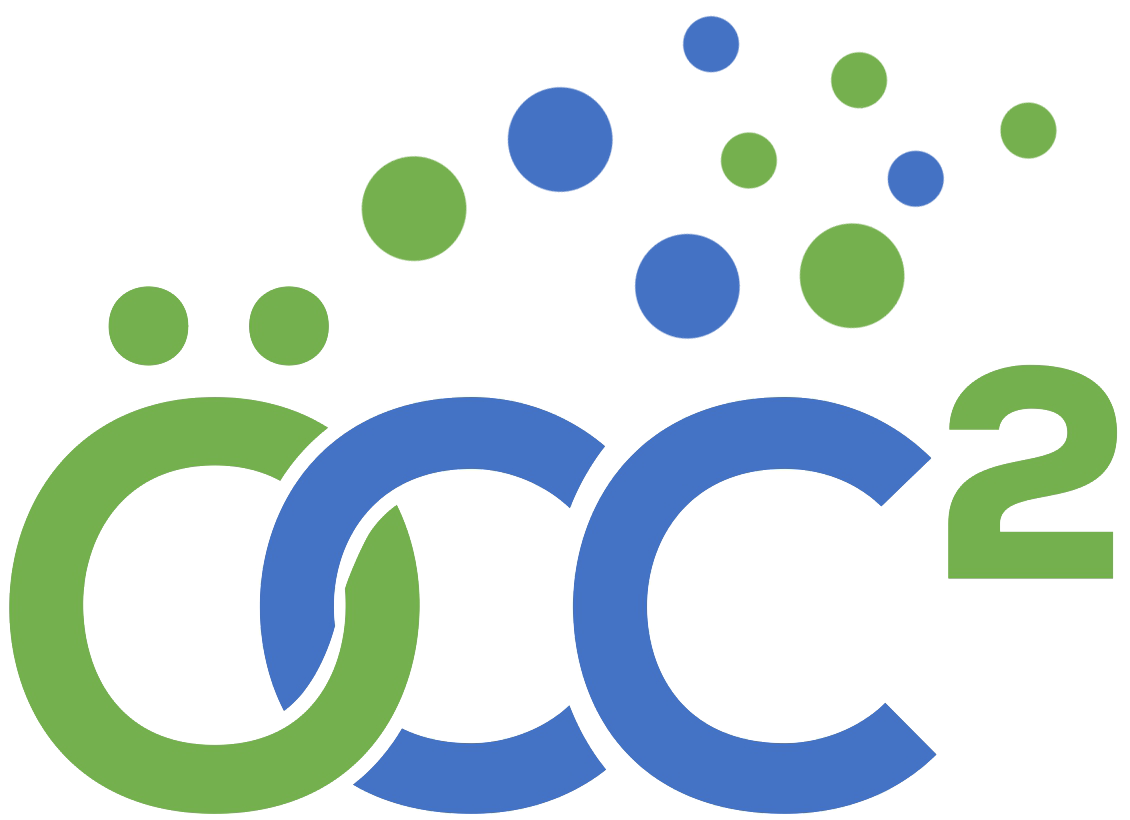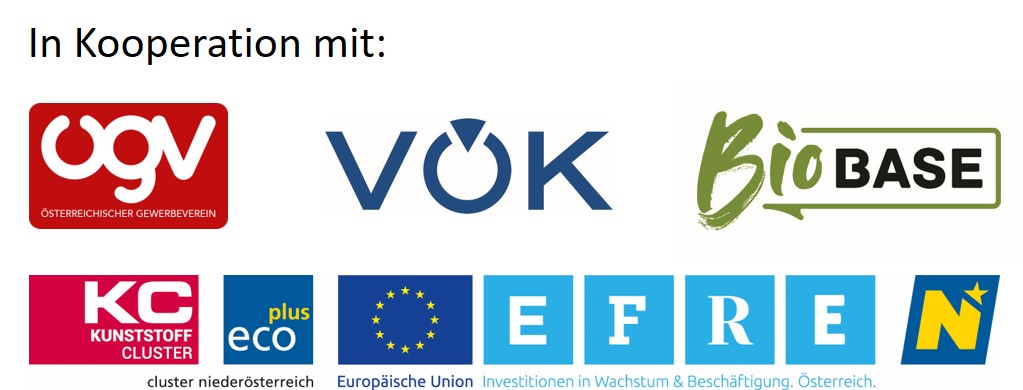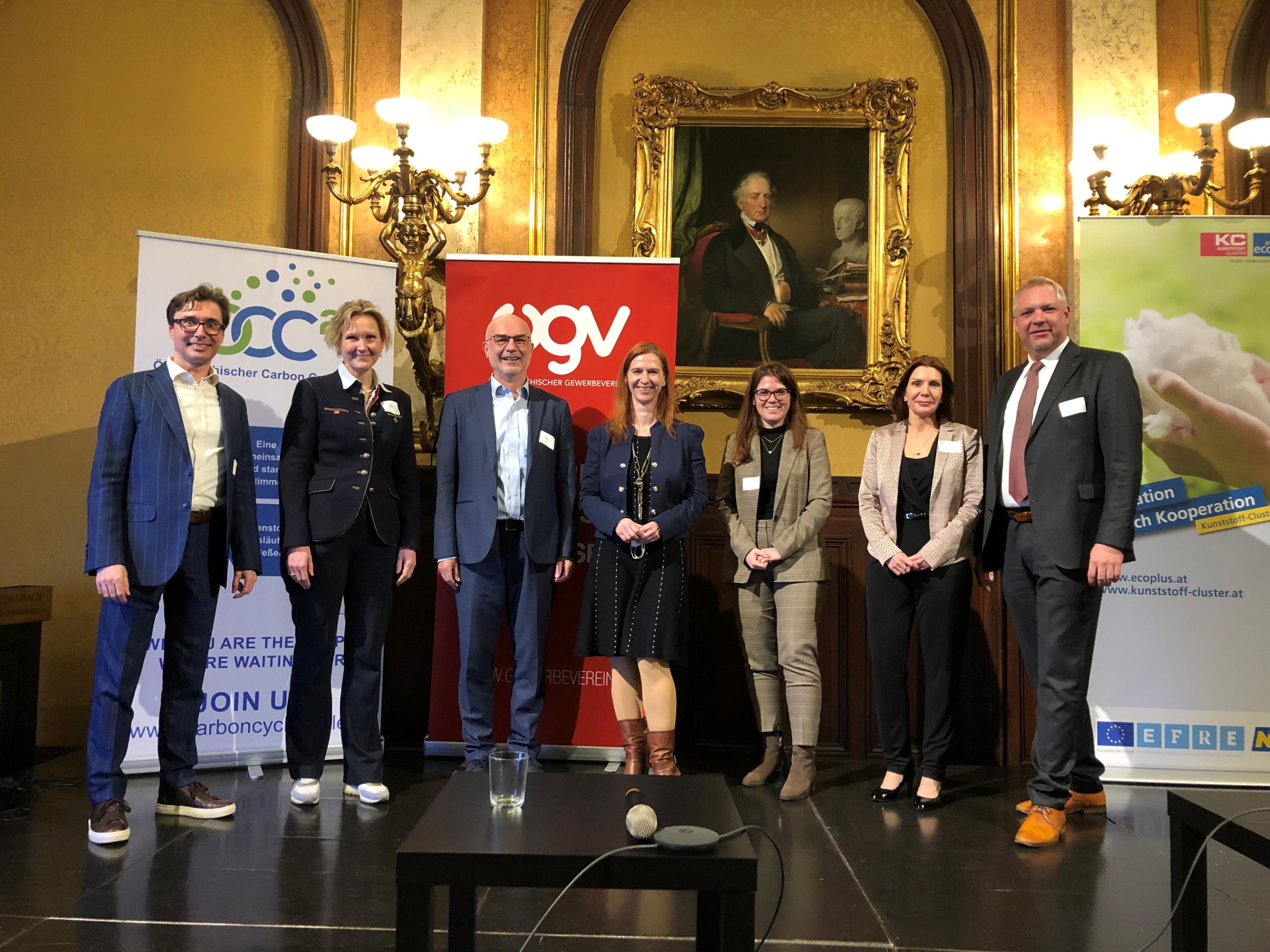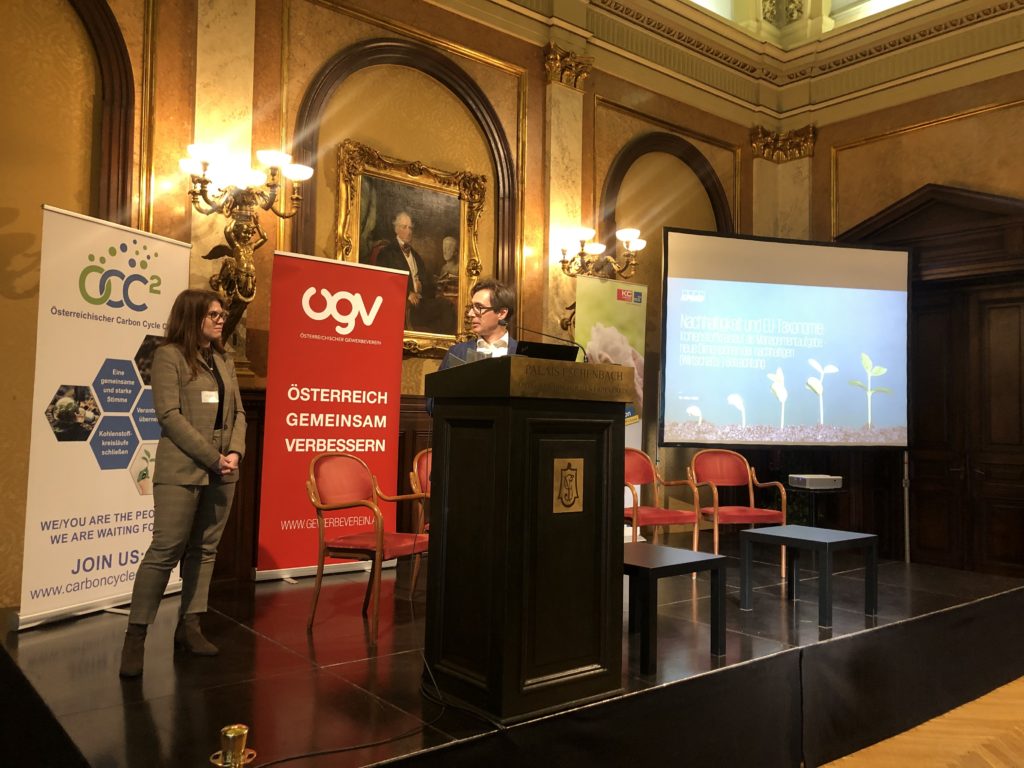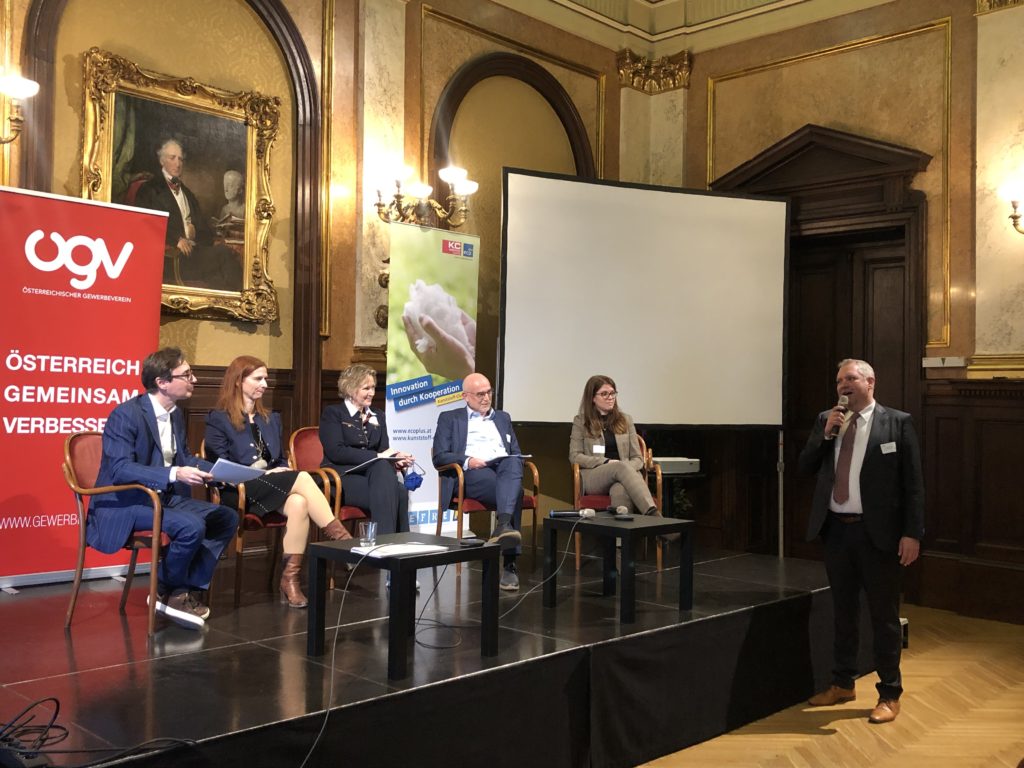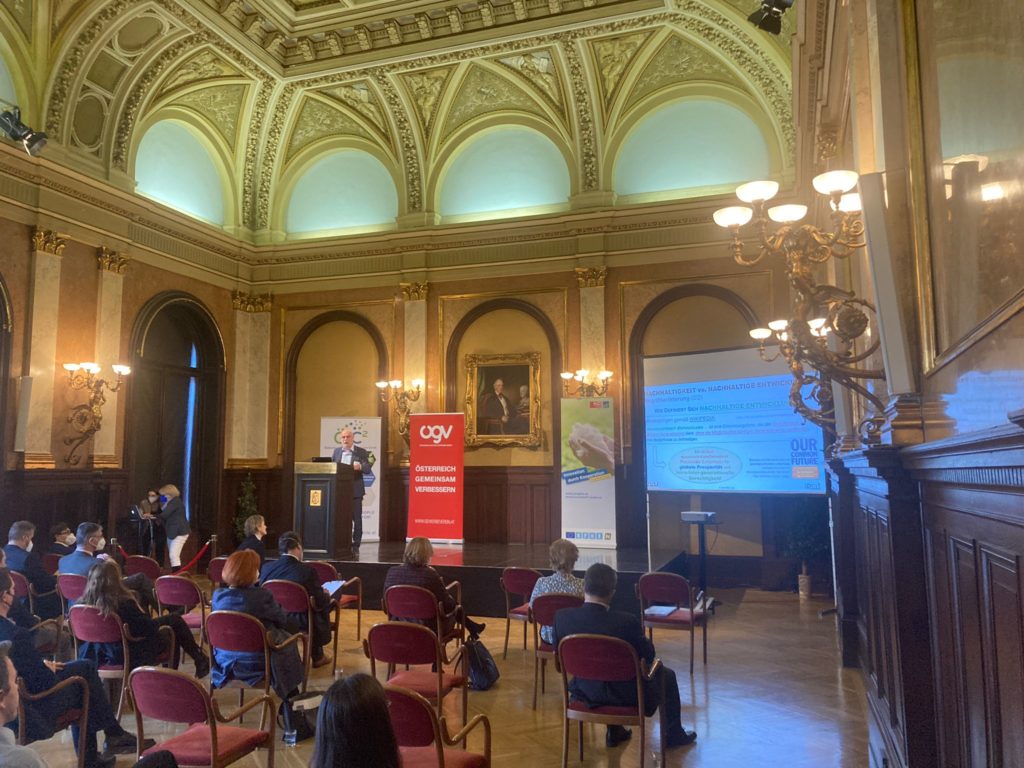Follow-up report on our event on 10.03.2022 | Sustainability and the EU Taxonomy Regulation
Post-event report on our event from March 10, 2022 | Sustainability and EU Taxonomy: Carbon Cycle as a Management Task – new dimensions of sustainable (economic) consideration The Austrian Carbon Cycle Circle – Team for Sustainable Carbon Cycle (ÖCC2), in cooperation with the Austrian Trade Association (ÖGV), the Association of Austrian Plastics Processors (VÖK), the Kunststoffcluster, and BioBASE GmbH, successfully conducted the first hybrid event on March 10, 2022. Hybrid means that the on-site event at Palais Eschenbach was also broadcasted online. The event focused on the very current, yet largely overlooked topic of the European Taxonomy Regulation, which is a key component of the EU’s Green Deal and part of the “Action Plan for Financing Sustainable Growth.” The first requirements from the Taxonomy Regulation have been in effect since January 1, 2022. Through its demand for enhanced reporting, the regulation aims to increase transparency in sustainable activities and prevent so-called “greenwashing.” The Taxonomy Regulation sets rules for defining which economic activities can be considered environmentally sustainable and provides instructions on how this information should be made publicly accessible. In several highly informative presentations, experts from various fields explained how the EU Taxonomy works, its specific climate and environmental protection goals, its implications for financial management (banks), and how businesses are directly affected. Univ.-Prof. DI Dr.mont. Reinhold W. Lang, Chair at Johannes Kepler University (JKU) in Linz, opened the event with his keynote speech. His lecture was titled “Climate and Circular Economy Policy as Key Political Action Areas. Circular Carbon Management and the Key Role of the Plastics Industry.” Professor Lang highlighted that addressing the climate crisis and circular economy must be understood as interconnected themes and policy areas. A new, industrial-circular carbon management could position Austria and Europe as global leaders, establishing them as leading industrial sites for high-quality, resource-efficient, and low CO2 emission production in the future. The plastics industry plays a key role in this context. Plastic waste in all its forms (especially plastic litter, micro/nano-plastics) is a visible expression of a dysfunctional economic system that urgently needs paradigmatic reorientation and modernization away from outdated concepts and models from the pre-industrial revolution era! Ursula Oberhollenzer, Vice President of ÖGV (Austrian Trade Association) focusing on sustainability, serves as a consultant for sustainability and communication with a focus on SMEs and manages the Sales & Communication sector for eccos22®. In her presentation, she provided insights into the history and core themes of sustainability and their significance for businesses in her role. Ing. Mag. Markus Brunnthaler, Managing Director of Miraplast GmbH, presented the current situation from a company perspective in his lecture: what is expected from plastic-producing companies, what Miraplast is already implementing, and what questions remain unanswered. Under the EU Taxonomy, companies will need to find raw materials that fit into the taxonomy and convert all products to these raw materials. Additional measures include improving the CO2 footprint, energy-efficient production facilities, CO2 certificates, etc. However, there are still many open questions, particularly regarding implementation and financing, which Markus Brunnthaler also addressed in his presentation. DI Marina Luggauer is Assistant Manager Sustainability Service at KPMG Austria, responsible for conducting audit and consulting projects in the sustainability sector, with a particular focus on the EU Taxonomy. In her comprehensive presentation, she provided the audience with the fundamentals of the Taxonomy but also detailed how the regulation affects plastic manufacturers. Karin Lenhard, from Erste Bank, concluded the lecture series with her presentation “The Taxonomy in Finance – Green Transformation in Practice,” presenting the taxonomy classification framework, how taxonomy compliance will be assessed at the activity or financed asset level in the future, and the general implications of the taxonomy on future financing and lending. The expert panel discussion following the presentations was moderated by Ing. Mag. Markus Brunnthaler. The lively panel discussion focused on points raised in Prof. Lang’s polarizing presentation and discussed relevant questions regarding the taxonomy’s impact on companies, which were answered by the experts. With over 60 participants and highly positive feedback afterward, the second major event of ÖCC2 was a great success. For a preview and details of upcoming events by the Austrian Carbon Cycle Circle – Team for Sustainable Carbon Cycle (ÖCC2), visit the homepage: carboncyclecircle.at/veranstaltungen/
